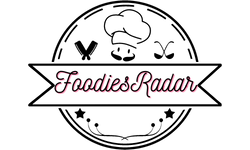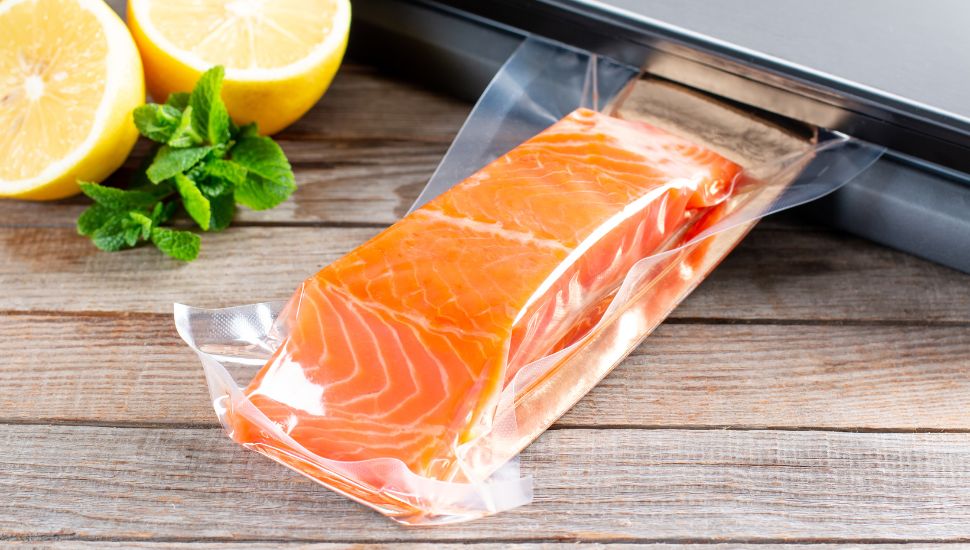
Salmon is a general term used for many varieties of fish of the family Salmonidae. Salmon, when butchered, appears a vivid orange or red color.
It is classified as an oily fish with meat rich in protein and a rich content of fatty acids. It is native to the river tributaries of the North Atlantic and North Pacific basins.
Salmon is a fish that migrates annually upriver to breed and lay eggs. Many salmon are caught and hunted during their mating season and hence contribute to the economy as food.
Today salmon is a part of the international fishing industry and contributes a lot to the global fishing industry economically, which has led to its mass hunting and bulk storage.
Now that it’s stored in bulk, it becomes necessary to ask if Salmon can be frozen. Keep reading to find out.
Can you freeze salmon?
Salmon is a good food for your health wise as well as a food which is healthy, and that’s why it has become a staple for people that are conscious about their health.
For health-conscious people, such a staple food must always be available on hand, and so to such people, I assure you that, yes, it is absolutely possible to freeze Salmon.
You can freeze Salmon and increase its shelf life many folds, but do that so on your own discretion, like if you are planning to consume your leftover salmon only about a day or two later, then it’s better to refrigerate.
Can You Freeze Smoked Salmon?
The question about the possibility of freezing smoked salmon is a frequent one, and to everyone wondering about the answer, I say yes, that it is absolutely possible to freeze smoked salmon.
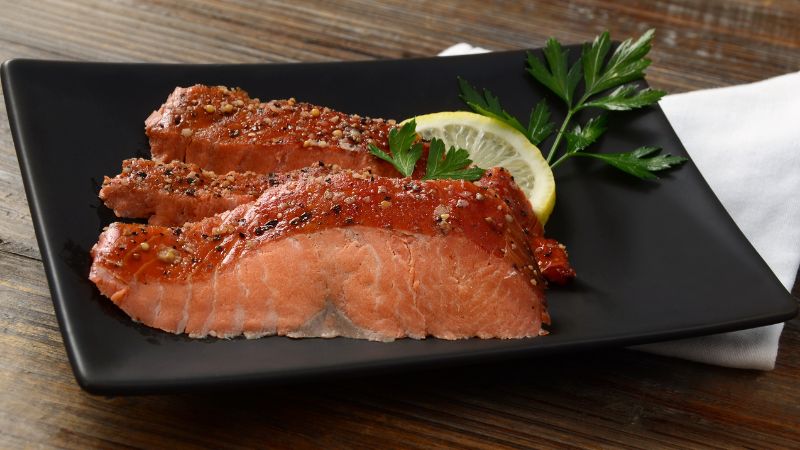
Smoked salmon has a shelf life of about two weeks, but that doesn’t mean that it’ll be on the same level of freshness throughout.
Its texture will start to deteriorate the moment it is sliced and to keep the deterioration to a bare minimum, and it should be kept at as low a temperature as possible.
Can You Freeze Cooked Salmon?
Is freezing cooked salmon possible? Yes. But is it recommended or preferable? No. You can freeze cooked salmon and eat it later, but why do it when you can eat it fresh?
Why make yourself go through the ordeal of eating an already-cooked salmon which has already been cooked and not to mention frozen.
Whenever eating a meal, try to consume it as fresh as possible and avoid freezing it. Even if you have leftovers, it’s a better option to refrigerate them and eat them the next day than to freeze them and eat them a week later.
More related content:
- Can you freeze zucchini
- Can you freeze mashed potatoes
- Can you freeze celery
- Can you freeze chicken salad
- Can you freeze papa murphy’s pizza
How To Freeze Salmon?
The process of freezing salmon is fairly easy and doesn’t require putting in a lot of hard work but still, regardless of the ease of action, it needs to be done properly and appropriately so that the salmon doesn’t spoil during the storage time period.
All you need to do to freeze Salmon appropriately is to follow these instructions,
- First and foremost, you should prepare your fish for freezing. There are multiple ways via which salmon can be prepared for freezing, and from them, choose the one best suited for you. The most common way of preparation is fileting it.
- You can freeze Salmon filles or freeze them by in mousse or terrine form.
- You need to have proper packaging around the salmon before you put it in the freezer, so wrap it appropriately with a double layer of cling film.
- This would keep the salmon airtight.
- Pop this salmon in a plastic bag, lock it airtight, and put it inside your freezer, and you’re done.
How Long Can You Freeze Salmon?
Salmon refrigerated at 0-4 °C will stay fresh for about a day or two, smoked salmon, once opened, only stays at its best taste and texture for about the following 72 hours, but frozen salmon will last way longer when compared to them.
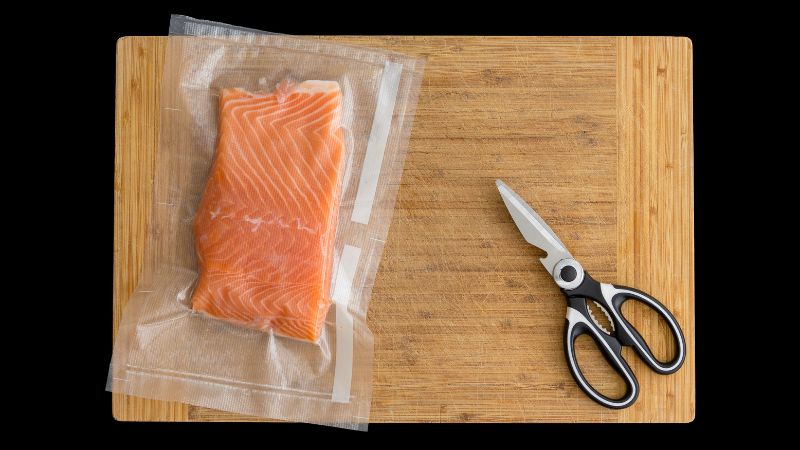
Salmon, when prepared appropriately and sealed in an airtight bag, will last up to 2 months, but that doesn’t mean you should store it that long. The freshness of taste and texture will not be the same as day one on day 60.
Does Salmon Freeze Well?
Salmon is a fish that freezes well, and it endures the freezing process even better when prepared for freezing appropriately. Here are a few tips which you can use to ensure that your salmon freezes well.
- Use good-quality airbags which limit exposure to the atmosphere.
- Make sure there is no air left inside the bag, but suck all of it out through a straw.
- Keep it near the walls of your freezer so that it freezes well.
How To Defrost Salmon?
Whenever you feel like eating the leftover Salmon that you froze some time ago, you should start by defrosting it. To Defrost, start by taking a bowl in which you are going to allow the salmon to leak all of the water which melts during defrosting.
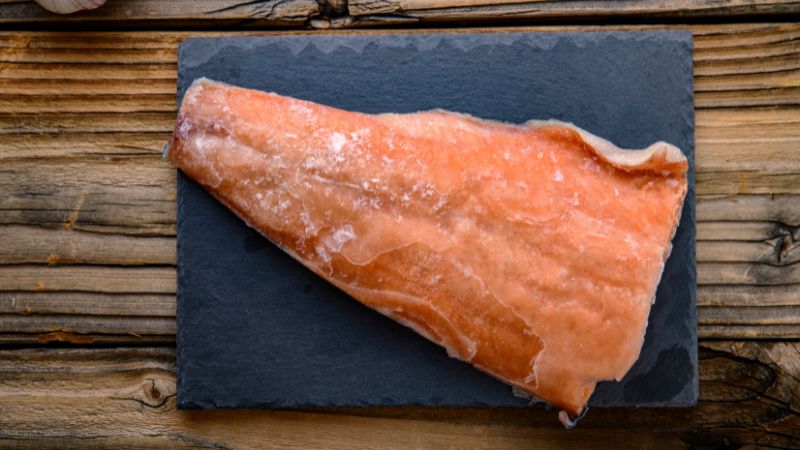
Place salmon in the bowl, and then afterward, you can leave it in the refrigerator to defrost overnight. Allow it all the time you can to thaw out completely so that when you eat it, it’s at its possible best.
Once defrosted, this salmon shouldn’t be refrozen as that will completely obliterate its texture and taste.
Final Verdict:
Salmon is a tasty fish that is rich in proteins and fats. It has a delightful texture. It is a fish that can be frozen well and can last for up to 2 months in the freezer, but I recommend against it.
You buy salmon for its rich taste and proceed to freeze and destroy that taste by freezing? It sounds like a waste of money to me.
Freezing should only be an option for those who deal with salmon in bulk, and that’s only because they buy it to sell and not to consume. Whenever you buy salmon, eat it fresh and get your money’s worth.
FAQs (Frequently Asked Questions)
Can Raw Salmon Last 5 Days In The Fridge?
You should only store salmon in the fridge instead of the freezer if you are planning to consume it in the near future, like a day or two at most.
Refrigerating salmon slows down the effects of bacterial action, but it doesn’t stop it, so you only have a max limit of around 2 days to consume the salmon that you have refrigerated. Another day beyond that, and it might start to smell and go bad.
Can Raw Salmon Last 4 Days in the Fridge?
It might, but barely, and afterward, when you decide to cook it, it might not taste the best.
It is definitely going to lose its freshness, and moreover, raw salmon is rich in proteins and fat, which are the favorite targets of a lot of degrading bacteria and fungi.
Plus, the salmon being in the fridge and not the freezer is more prone to going bad.
Does Freezing Salmon Affect Taste?
Yes, definitely. Freezing some salmon is definitely going to take away all its freshness, and depending on the time period of storage, you will experience different levels of taste and texture deterioration.
The longer a salmon has been stored in the freezer, the more are the chances of it tasting bad.
How Long Can Salmon Stay In The Fridge?
You can store salmon in the fridge for a maximum of a week, but it is not recommended.
You shouldn’t store salmon (cooked or raw) in the fridge for more than a maximum of two days if you want to experience it at its best. If you let it sit in the fridge beyond that, chances are it will develop a bad taste.
Does Freezing Salmon Destroy Nutrients?
Not necessarily due to freezing, but a lot of metabolites spontaneously degenerate with time inside the salmon, making it less and less nutritious, so it’s best to consume it as quickly as possible when it is at its best.
Is Raw Salmon Safe After Freezing?
Freezing Salmon inside the salmon will not cause any harm to it, but if the salmon has been lying in the freezing for a couple of months, then things become different.
Freezing can increase the life of an edible substance, but it can’t do so indefinitely. So it’s best not to leave it at the chance and get your frozen salmon out and eat it the first chance you get.
